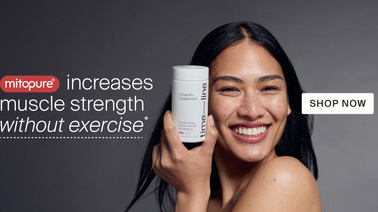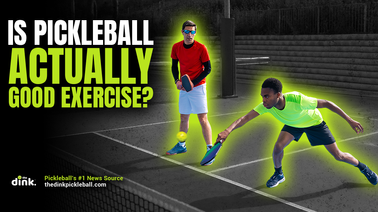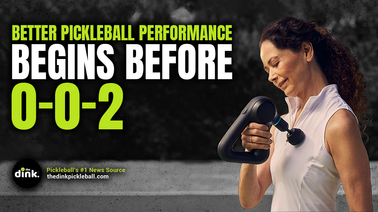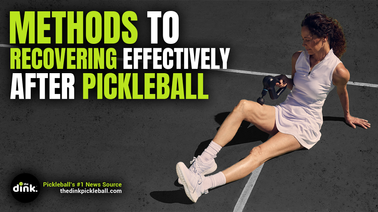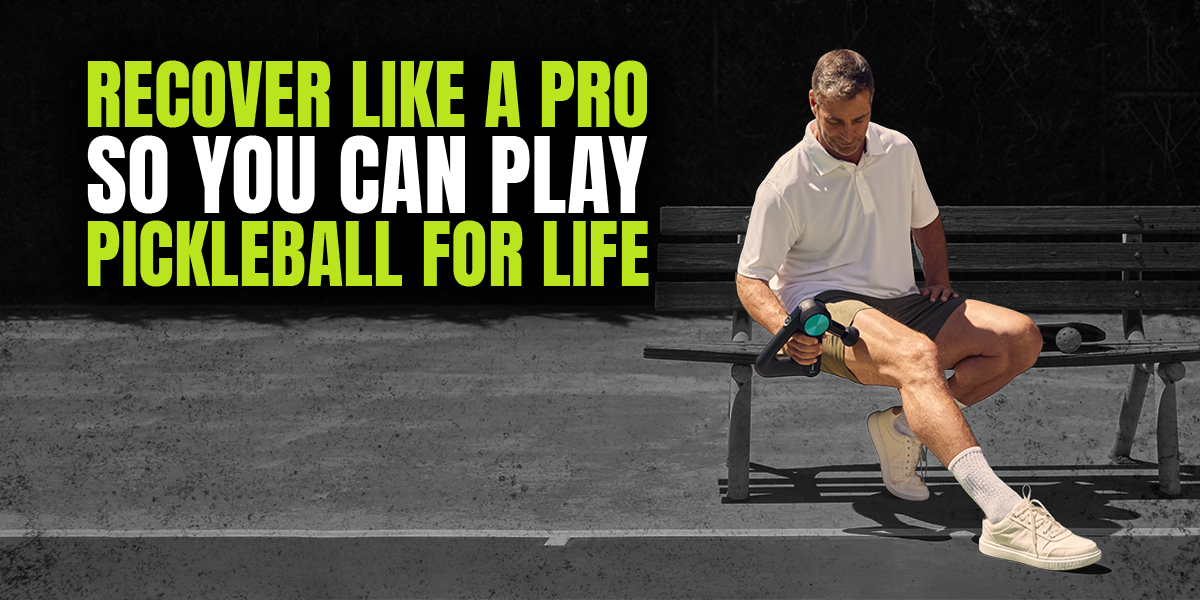
You can learn a lot by watching pro pickleballers play. Perhaps the most beneficial thing you can learn from them is what they do off the court.
And no, we're not talking about drilling a two-handed backhand or studying film.
We're here to discuss the recovery habits of pro pickleball players, how these habits help them play pickleball at the highest possible levels, and how a proper routine can extend their careers. Incorporating various recovery tools and techniques, such as a Theragun, can make a significant difference.
Even if you never plan on becoming a pro pickleball player, this information will help you stay on the court longer and improve your quality of life off it.
Let's dive in.
Pickleball takes a toll
Those on the outside looking in may think that pickleball is easy and doesn't require much physical fitness.
Those of us who play several times a week – usually for multiple hours each time, know better.
Pickleball, like any other sport or physical activity, takes its toll on our bodies. Knees become inflamed, elbows get sore, and that limp is a little more pronounced the day after play.
Unfortunately, over a long period of time, the "rent" comes due on this physical pounding. If you're not finding ways to alleviate this toll, then you're doing yourself a huge disservice.
The importance of recovery in pickleball
Recovery is the process through which the body repairs and strengthens itself after physical exertion.
Muscle soreness and fatigue are common in pickleball, where players often experience rapid bursts of movement, sudden changes in direction, and repetitive actions.
Without proper recovery, these can lead to overuse injuries, decreased performance, and burnout. By prioritizing recovery, players can maintain their physical health, improve their game, and enjoy the sport for years to come.
Without proper recovery, these can lead to overuse injuries, decreased performance, and burnout. By prioritizing recovery, players can maintain their physical health, improve their game, and enjoy the sport for years to come. Using effective recovery tools can significantly enhance this process.
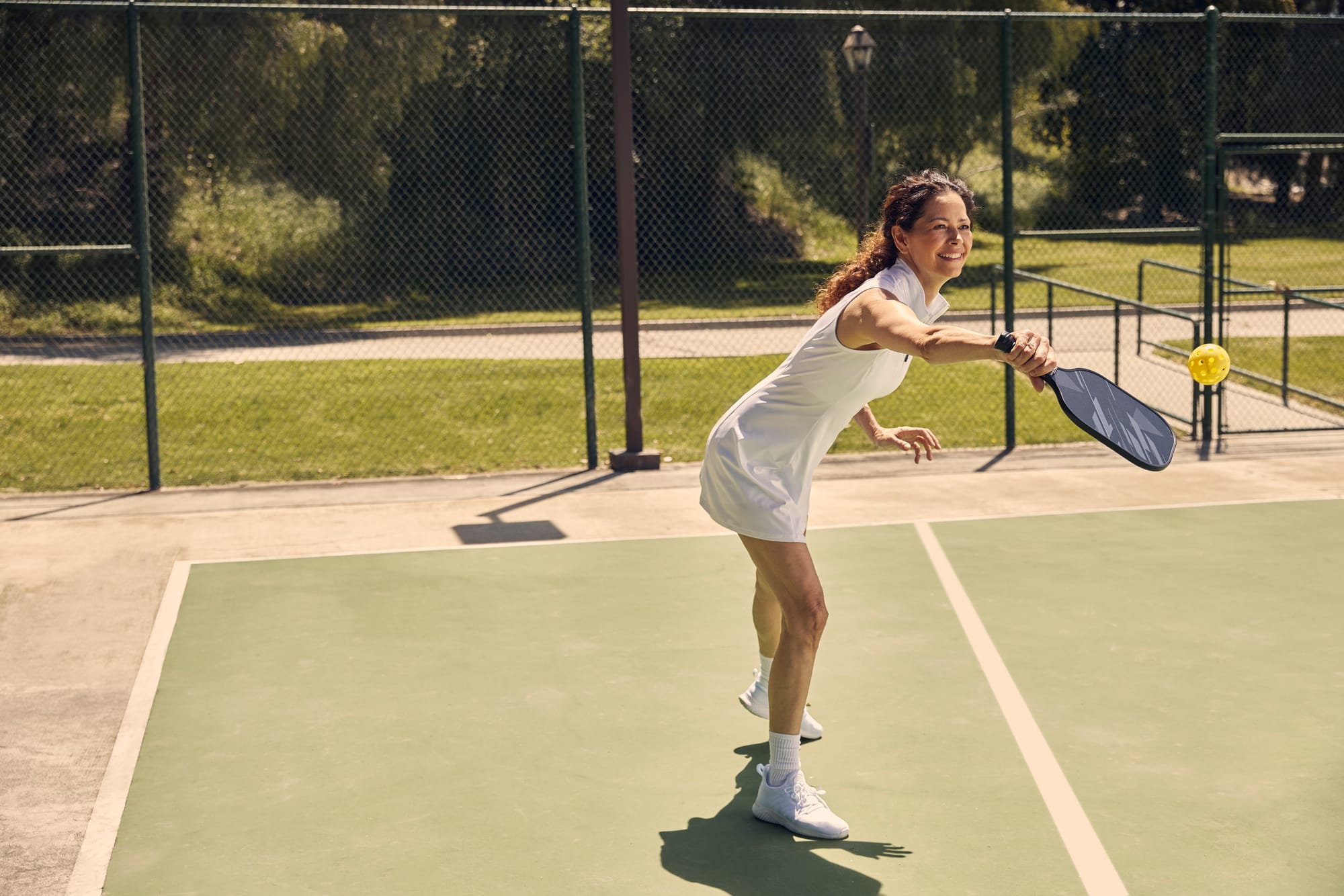
Pre-match preparation
Pickleball pros and trainers know that a good recovery routine starts before you even step onto the court. Preparing your body for the demands of pickleball can prevent injuries and enhance performance.
Here's what Pro Pickleball Trainer Connor Derrickson has to say about pre-match warmups:
Stretching, prep, dynamic stretching, warm up, prepping your central nervous system, as well as making sure your body is 100% prepped and ready physically and mentally, puts you into a physical and mental mindset needed for success during a match.
Most people warm up by hitting a few dinks before starting play. This is a huge mistake and leads to your body taking more of a beating early on because your joints and muscles just aren't prepared for physical exertion.
Instead, here's how you can get a proper warmup in:
Warm-Up Routine: Begin with a dynamic warm-up to increase your heart rate and loosen your muscles. Activities like light jogging, jumping jacks, and dynamic stretches (leg swings, arm circles) are excellent for getting your blood flowing.
Even just a few minutes can make a massive difference, especially early in a match.
Outside of the warmup, you should focus on:
- Hydration: Staying hydrated is crucial for muscle function and overall performance. Drink water before, during, and after your matches to keep your body functioning optimally.
- Nutrition: Eating a balanced meal or snack with carbohydrates and protein before playing helps fuel your body and stabilize your energy levels. It also prevents a crash mid-match when your body begins losing nutrients through sweat.
- Pre-Match Massage: Using a Therabody massage gun, like the Theragun, is a quick and easy way to activate muscles and increase blood flow. Focus on major muscle groups like the legs, back, and shoulders to prepare your body for the game ahead.
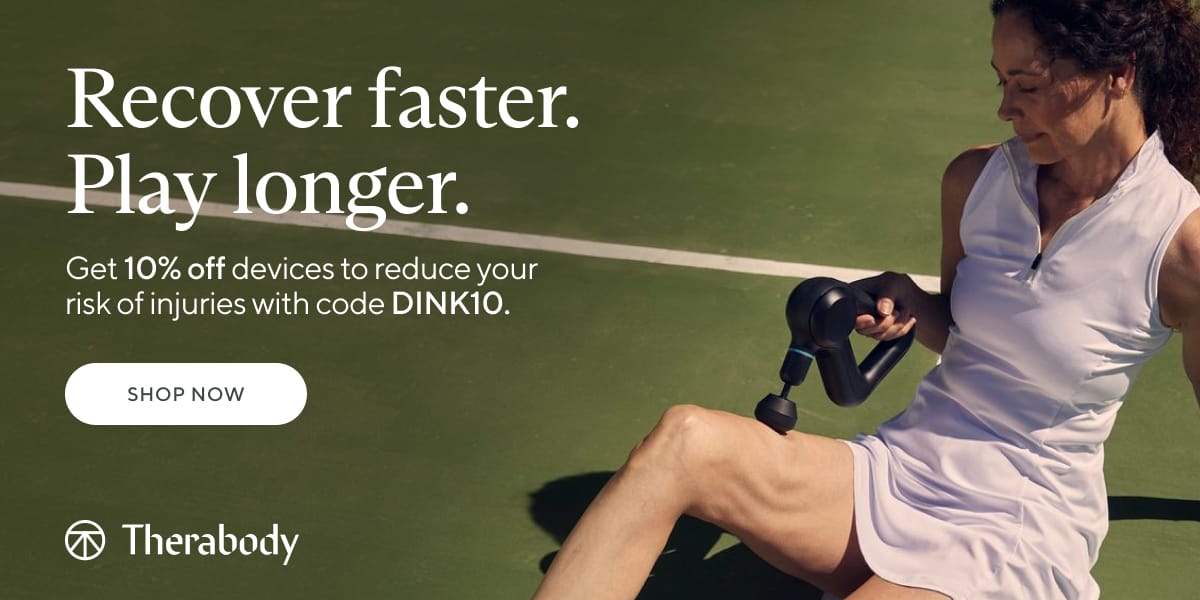
Post-match recovery
Post-match recovery is essential for repairing muscles, reducing soreness, and preparing for the next game.
- Cool Down: After playing, spend 5-10 minutes cooling down with light activity, such as walking or gentle stretching. This helps gradually reduce your heart rate and prevents stiffness, especially if you have a drive home.
- Stretching: Incorporate static stretches to lengthen and relax your muscles. Hold each stretch for at least 30 seconds, focusing on the hamstrings, calves, quadriceps, shoulders, and back.
- Rehydrate and Refuel: To support muscle recovery, replenish fluids lost during the match, and eat a meal rich in protein and carbohydrates.
- Massage Therapy: Therabody's massage guns are invaluable tools for post-game recovery. Use the device on sore or tight areas to help release muscle tension and improve circulation. The deep tissue massage provided by these devices can accelerate recovery by promoting the flow of oxygen and nutrients to fatigued muscles.
Recovery on off days
Recovery doesn't stop on non-playing days. Incorporating certain practices into your daily routine can enhance your overall well-being and keep you in top shape for pickleball.
- Rest and Sleep: Adequate sleep is one of the most critical aspects of recovery. Aim for 7-9 hours of quality sleep per night to allow your body to repair and rejuvenate.
- Active Recovery: Engage in low-intensity activities like walking, swimming, or yoga on your off days. These activities help maintain flexibility, reduce muscle stiffness, and promote blood circulation without putting excessive strain on your body.
- Nutrition and Hydration: Continue to eat a balanced diet rich in vitamins, minerals, and antioxidants to support overall health and recovery. Staying hydrated is equally important, even on rest days.
- Regular Massage: Using Therabody massage guns regularly can help maintain muscle flexibility and prevent the build-up of tension. Integrate short massage sessions into your daily routine, focusing on areas prone to tightness or discomfort.
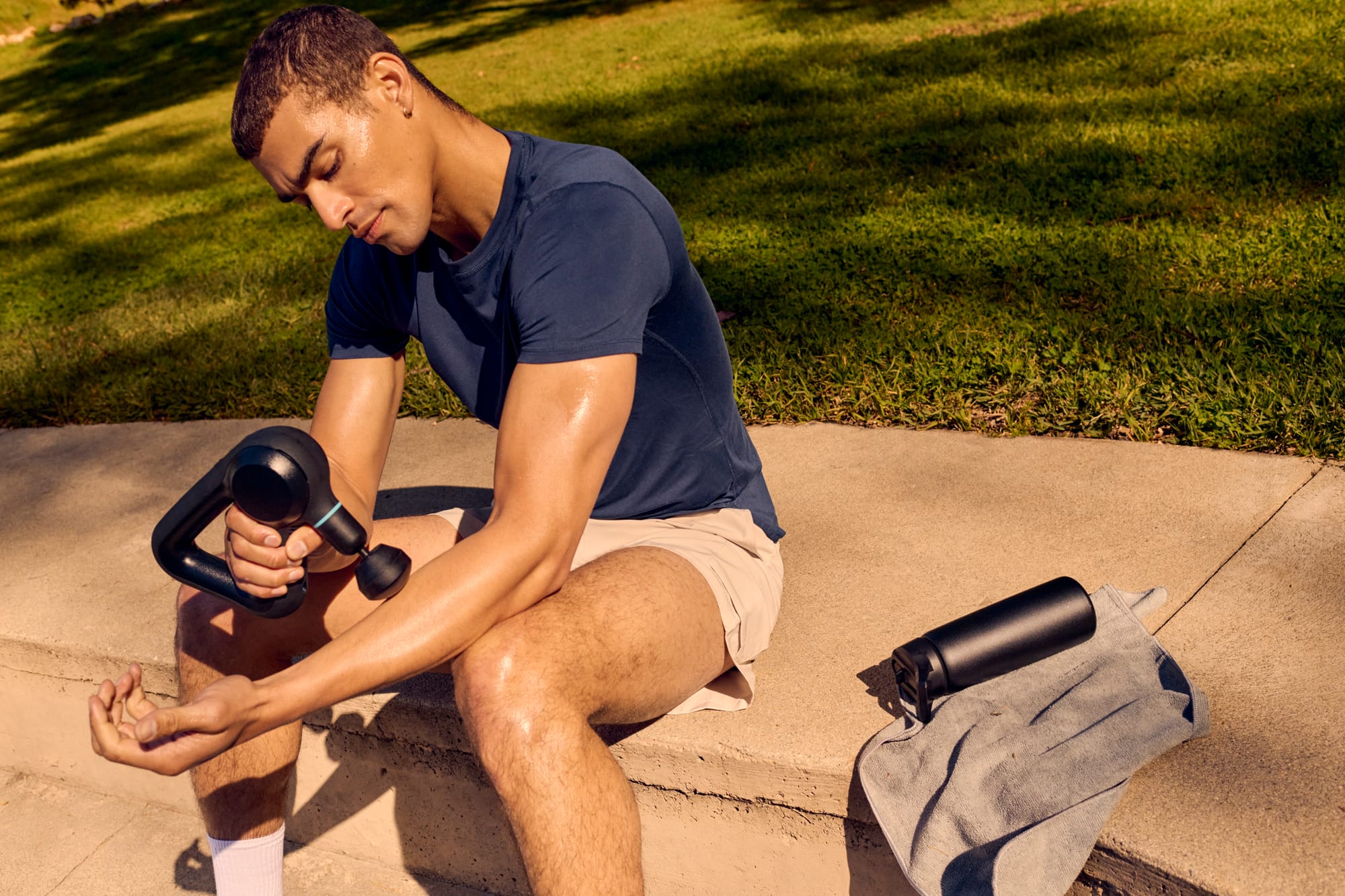
Enhancing performance through recovery
Focusing on recovery can have a significant impact on your performance and enjoyment of pickleball. By incorporating these practices, players can experience:
- Improved Flexibility and Range of Motion: Regular stretching and massage help maintain muscle elasticity, which is crucial for the quick, agile movements required in pickleball.
- Reduced Risk of Injury: Proper recovery reduces muscle fatigue and strain, which are common causes of injuries like sprains and strains.
- Increased Endurance and Stamina: A well-recovered body is better equipped to handle the physical demands of the sport, allowing you to play longer and more effectively.
- Better Mental Focus: Adequate rest and recovery contribute to improved mental clarity and focus, which are essential for strategic play and decision-making on the court.
Hear from the pros
Most of us will never be pro pickleball athletes. But that doesn't mean we can't incorporate their advice and routines into our own lives.
Here is what a few pros had to say about how they recover from pickleball:
Andrei Daescu - #21 on PPA Tour and #1 on APP Tour
"Considering the number of tournaments we play as pros every season, recovery plays a huge role in injury prevention and prolonging our careers.
Recovery tools are definitely very important in the process. The technology these days is really advanced and can help you speed up your recovery. I personally use compression pants, massage guns, and the Firefly device. Outside of that, I do the occasional ice bath and massage.
The routine benefits the whole body, but the most used muscles in our game seem to be the glutes, hamstrings, and shoulder, so I usually target those."
Salome Devidze - #5 on PPA Tour and #3 on APP Tour
"If I have 5 or more days before my next tournament, I will utilize tools like massage therapy. However, when I need to recover for the next day, I need tools to ensure that inflammation caused by huge amounts of physical activity (like the entire day of singles) goes down as quickly as possible.
My recovery doesn’t start after my last match of the day. It starts the day before. It starts by minimizing the stress my muscles and body are under during the tough day so recovery is quicker and more precise."
Zane Navratil - #22 on PPA Tour
"Playing full-time and professionally for as long as I have, recovery has become a more and more important part of my training. It's pretty simple: if I don't properly recover, it affects my overall fitness and on-court performance.
When I am proactive about recovering from a match, there's less chance of prolonged soreness and less chance of injuring myself. I've been lucky that I haven't suffered an injury that has forced me to take time off from tournaments, and I credit that to being disciplined about recovery.
Using tools like my MOVE+ and massage gun is the most impactful after playing. I can tell where I'm sore or weak and get to them immediately. I like to get to those joints and muscles that I have inflammation in and get the blood circulating to those areas."
Megan Fudge - #1 on APP Tour
"Massages on off days are amazing. I don’t always have the luxury of being in a place where I can go to a trusted massage therapist on my off days, but I also try to make the most of the trainers at the tournaments to get my post-match stretch. Some offer deep tissue massages, too. I think it’s great for recovery.
Other than that, it's rest, sleep, and stretch. I also focus on good protein and hydration."
Meghan Dizon - #5 on PPA Tour
"I really enjoy using TRX straps to help with stretching. I’m able to get a deeper stretch everywhere using those. Personally, my hips and hamstrings get really tight and sore, so I focus on stretching my legs and lower back a lot.
I think there’s a benefit to getting a massage before and after a performance. Before, it really helps loosen you up, and after, it helps you recover and stay loose. If it were up to me, I’d get a massage every other day, haha."
Rachel Rohrabacher - #6 on PPA Tour
"Recovery means everything to me because it extends my life and career as a professional athlete. Recovery is also injury prevention and can help an athlete in pre- and post-game scenarios.
I also have an amazing sports therapy masseuse who I see before and after every tournament, and she uses a modality called cupping (which is why you’ll see bruises on my shoulders/back sometimes at tournaments).
My neck, traps, lats, back, and piriformis benefit the most from my recovery routine."
Recovery is an investment in yourself
Investing time and effort into a comprehensive recovery routine is key to sustaining a long and enjoyable pickleball career. By warming up properly, cooling down, staying hydrated, and utilizing tools like a Therabody massage gun, players can enhance their physical health, boost their performance, and ensure they can continue playing the sport they love for years to come.
Remember, recovery isn't just about bouncing back from a game; it's about preparing for the next one and maintaining a healthy, active lifestyle.
Incorporating these strategies into your pickleball routine will not only help you recover like a pro, but also enable you to enjoy the game for life.



